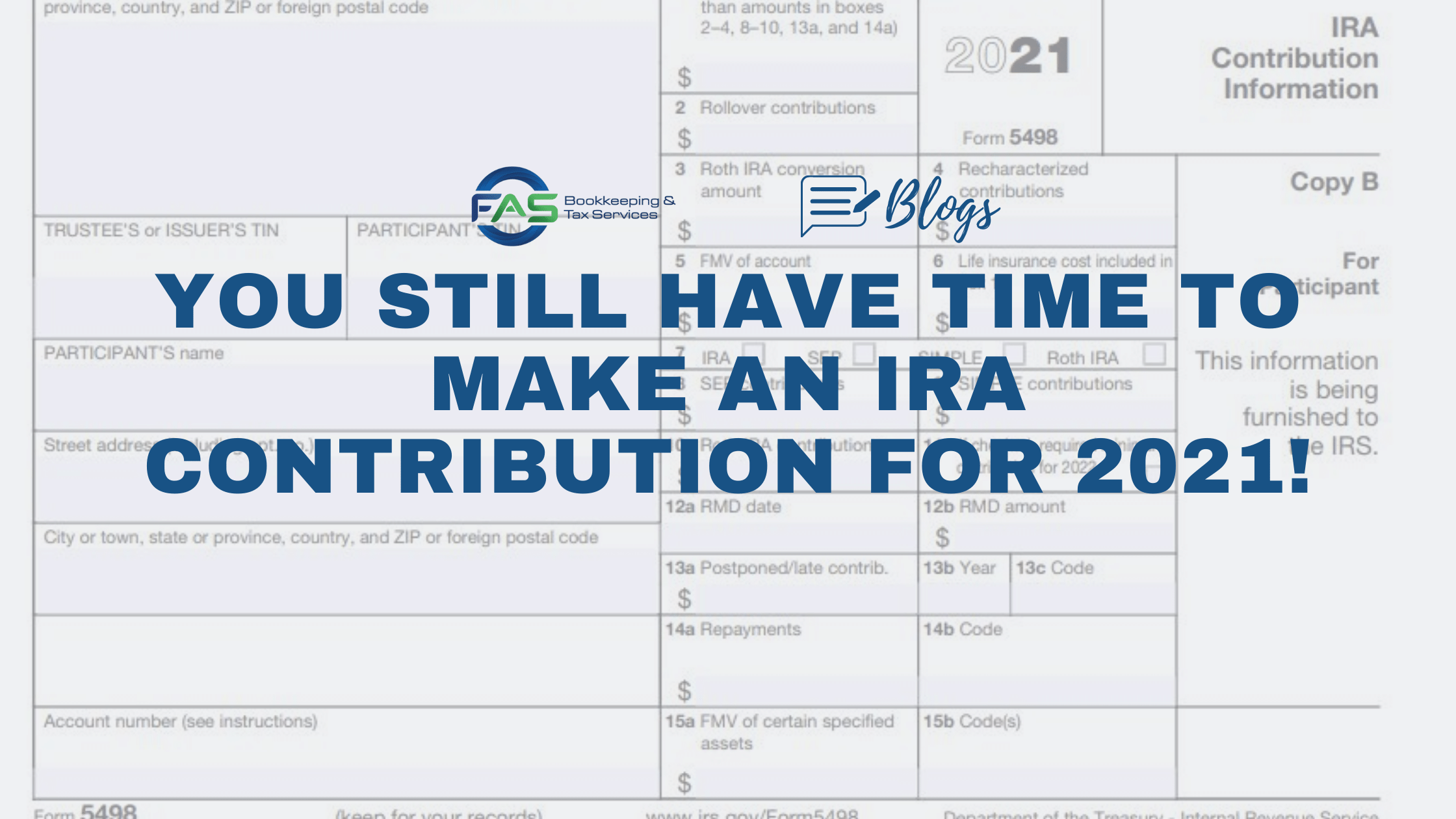You still have time to make an IRA Contribution for 2021!
Are you behind in your 2021 IRA Contributions? Don’t worry, you still have time to make an IRA contribution for 2021. If you haven’t contributed funds to an Individual Retirement Account (IRA) for the tax year 2021, or if you’ve put in less than the maximum allowed, you still have time to do so. You can contribute to either a traditional or Roth IRA until the April 18, 2022, due date (April 19 if you live in Maine or Massachusetts), not including extensions.
The good news is that you can make your 2021 IRA contribution at any point while the tax year is active. But before you do, we have a friendly reminder: make sure that you tell the trustee who holds your IRA account that the contribution is for 2021. This helps them report it correctly, and it ensures that the funds are added to your account in a timely manner.
You can contribute up to $6,000 of your earnings for tax year 2021 (up to $7,000 if you are age 50 or older) to an IRA, either a traditional IRA or a Roth IRA (if you qualify). You can choose to fund both, but your total contributions cannot be more than these amounts.
Traditional IRA
You may be able to take a tax deduction for the contributions to a traditional IRA, depending on your income and whether you or your spouse, if filing jointly, are covered by an employer’s pension plan.
This means that even if you don’t meet some of the qualifications for deducting an IRA contribution from your taxes, you still may be able to do so. For instance, if you have a high income and are covered by a pension plan at work, you may be able to deduct your contribution up to the amount of your total compensation.
The IRS website has more information on how to qualify for a tax-deductible IRA contribution.
Roth IRA
You cannot deduct Roth IRA contributions, but the earnings on a Roth IRA may be tax-free if you meet the conditions for a qualified distribution.
Roth IRAs are funded with after-tax dollars, so you cannot deduct your contributions from your taxes.
If you take out your money before age 59 1/2 (or before age 55 if you have changed jobs), you will have to pay taxes and penalties on that money unless you qualify for an exception (for example, if you are disabled or use the money to buy a first home).
A qualified distribution happens when:
- You take out your money after age 59 1/2
- You take out your money because of death or disability
- You take out your money to buy a first home for up to $10,000
Each year, the IRS announces the cost of living adjustments and limitations for retirement savings plans
To ensure you’re saving as much as possible, check out the newest updates each year.
Bottomline
You’ve probably heard it before, but saving for retirement should be an important part of anyone’s financial planning. It’s important to review your retirement goals each year and make sure you’re maximizing your savings.
Need help navigating your tax compliance this year? Hurry and send us a message today while you still have time to file your taxes!

